Our English Literature Degree
Welcome to Studying English Literature in SELLL
Welcome to English Literature at Newcastle
This page provides the advice that our current students recommend our new students should know. So thanks to them, on this page you will find:
- Our most important tip to prepare you for studying English Literature with us;
- Information about what you can do on each year of your degree;
- Descriptions of your day-to-day experience and how our students make friends at university and settle into a new environment;
- What academic support is available to help you develop your writing and arguments and to do your best work;
- Support you should access if you have a health condition or caring responsibilities that may impact on your degree.
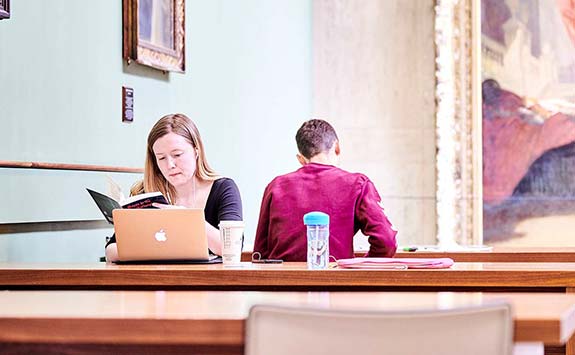
How to prepare for studying English Literature at Newcastle University
The best advice is to keep reading!
Further down we have lists of the texts we teach in first year but all forms of reading will help set you up for your degree. Read what you really enjoy and then branch out every so often into something new. Read the classics but also read genre fiction, graphic novels, non-fiction, short stories and long-form articles in magazines or online. From time to time challenge yourself with something new. Have you ever read a collection of poems? An autobiography or a diary? A novel in translation? Try one.
If you are able to attend live performances of plays, music or poetry, or to visit interesting exhibitions (in-person or online), take them up. When you are here here with us you will have lots of supported opportunities to do all of these things either with your class or with student societies.
Try listening to some of the episodes on the Backlisted podcast to get into the swing of thinking about literary texts.
Highlights for us include: the discussions of Beowulf, a text we teach in the first weeks of Semester 1; of Toni Morrison's Beloved, featuring our Professor of World Literature and Creative Writing, Preti Taneja; and, a personal favourite, the discussion of Susan Cooper's novel of winter magic, The Dark is Rising.
If you enjoy song lyrics, you may like Song Exploder.
This is a podcast where musicians discuss in detail the lyrics of a song - one of their own or someone else's - and unpick the meanings for their listeners.
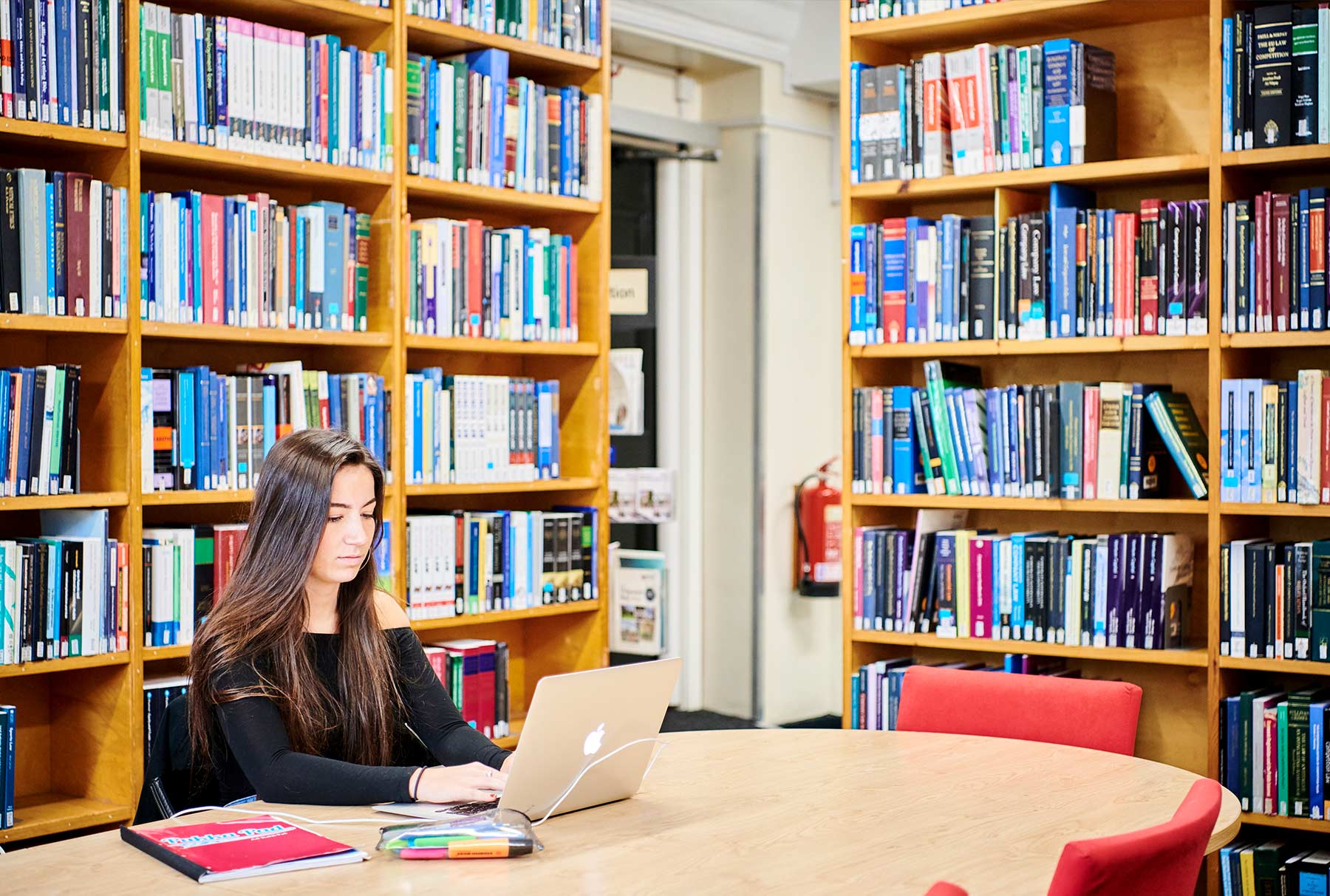
Sorry, you need JavaScript to view this video
What modules do I take in first year?
In first year, we think about the origins of English Literature and the transformations that have made it a global subject.
Our core stage one modules are called Beginnings, Revolutions, Transformations and Doing Criticism. On these you will get to read some of the earliest literature written; some of the most groundbreaking in terms of stylistic innovation and investment in new ideas; and some of the most influential on generations of writers and thinkers. On Doing Criticism, you develop your personal strengths as a writer and critic. You will also take two 'outside' modules from our range of humanities subjects so you can take a class wherever your interests take you: you will have options in creative writing, history, multiple languages, film, education, art history, politics, geography, sociology, media, archaeology and classical studies.
Some of the texts we will be discussing in Semester 1 (so in your first three months) include:
- the epic Old English poem, Beowulf;
- the opening of the most famous text of medieval literature: ‘The General Prologue’ from Geoffrey Chaucer’s The Canterbury Tales;
- the text that gave us the word and the concept: Thomas More, Utopia;
- a play of the "new" world: William Shakespeare, The Tempest;
- a play by the first major female playwright of the public stage: Aphra Behn, The Rover;
- a work of American protest poetry: Muriel Rukeyser, The Book of the Dead;
- a Renaissance play about two girls in love: John Lyly, Galatea;
- an American short story about work avoidance: Hermann Melville, 'Bartleby the Scrivener'.
More about taking ‘outside’ modules
You can take modules from other subject areas in your first year and, with permission, in your second and third year.
You have a huge range of subjects from which to choose. Here are the modules that were available last year to our incoming first years. You can expect a similar breadth of subject opportunities to be available to you and you will receive a link to your choice of outside modules. You can choose before you arrive or you can choose in induction week. Sadly we cannot guarantee specific modules with the exception of our own ‘outside modules’: Introduction to Creative Writing’, which does exactly what it says, and Drama, Theatre, Performance, a module focused on stagecraft. These are open to all students of English Literature. You can continue to do modules in theatre and in creative writing throughout your degree.
Assessments
A distinctive aspect of our degree is our variety of assessment.
Almost all of our modules offer an essay as the main assessment. But several modules offer you a choice. So for example, on our second year module, Renaissance Bodies, students can choose to write an essay, or create the theatre programme for a staging of a Renaissance play, or curate an online exhibition. On a third year module studying the country house, you can write an essay, develop a piece of creative writing, or compose a short guide to a country house as your final assessment. Your first year modules will focus a lot on formative and practice assessments to make sure you feel confident when writing up your final pieces.
These different options mean that our students have more control and choice in how they are assessed and get to work to their strengths.
We have a particularly strong choice in terms of your final year dissertation, where you can write a long-form essay on a literary topic of your choice; curate an online exhibition on your chosen topic or train in digital and editorial skills through creating an online edition of a text.
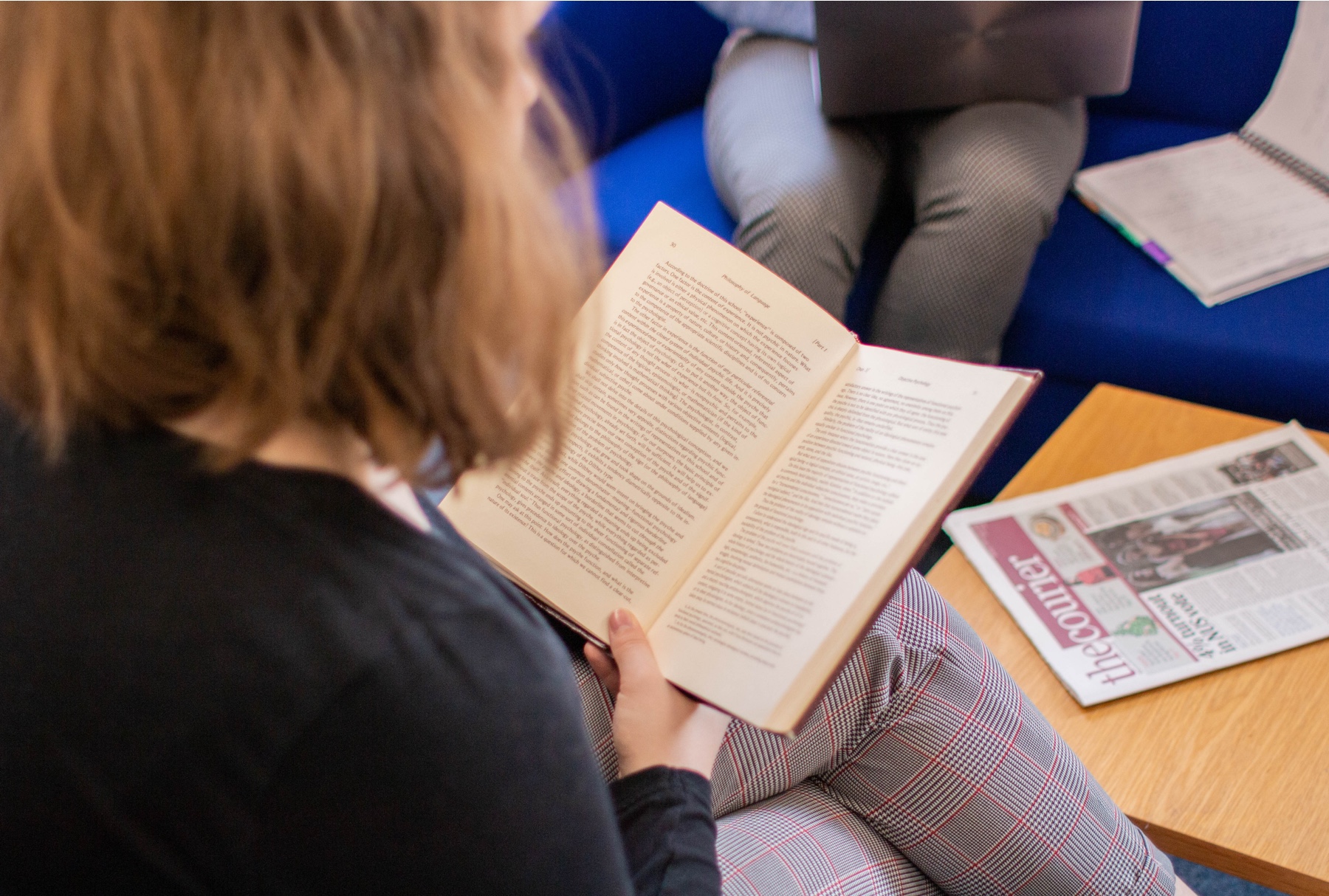
What your day-to-day routine will be like
Student life is engaging, energising and busy!
You will get your timetable from the Student Portal and you will get alerts to attend your lectures (at least six per week) and your seminars (at least three per week). You will also take part in independent sessions with four or five other students to discuss seminar work. Around these regular hours, you will spend a lot of time in the library:
- reading the assigned primary and secondary texts;
- watching films and plays;
- completing practice exercises and real assessments.
You will also be:
- taking module fieldtrips;
- checking in with your Personal Tutor at regular meetings;
- making appointments with your lecturers to discuss what you are studying and writing;
- hitting your assessment deadlines.
And, of course, you will need time to meet friends, go out in the incredible city of Newcastle, take part in activities with your favourite societies, go to the university gym, and generally do the work of life. Many of our students also have part-time jobs or other responsibilities they need to balance with their studies.
Getting to know people
You will meet lots of new people in your lectures, your seminars and your study groups.
Study groups are small groups of students asked by their seminar tutor to meet up regularly outside the seminar. In study groups, you will discuss your reading, think about a set question and report back to the seminar with your ideas. These groups are great for getting to know your fellow students. In your first week, you will also meet a peer group of new students with a second or third year who will be your Peer Mentor.
You can also meet your fellow students and pursue shared interests by joining the Creative Writing Society, English Society, the Theatre Society or by writing for The Courier.
The Students’ Union hosts events, gigs and has over 200 societies to choose from: perhaps you might like to join the Llama, Alpaca and Goat Society or the Yoga Society?
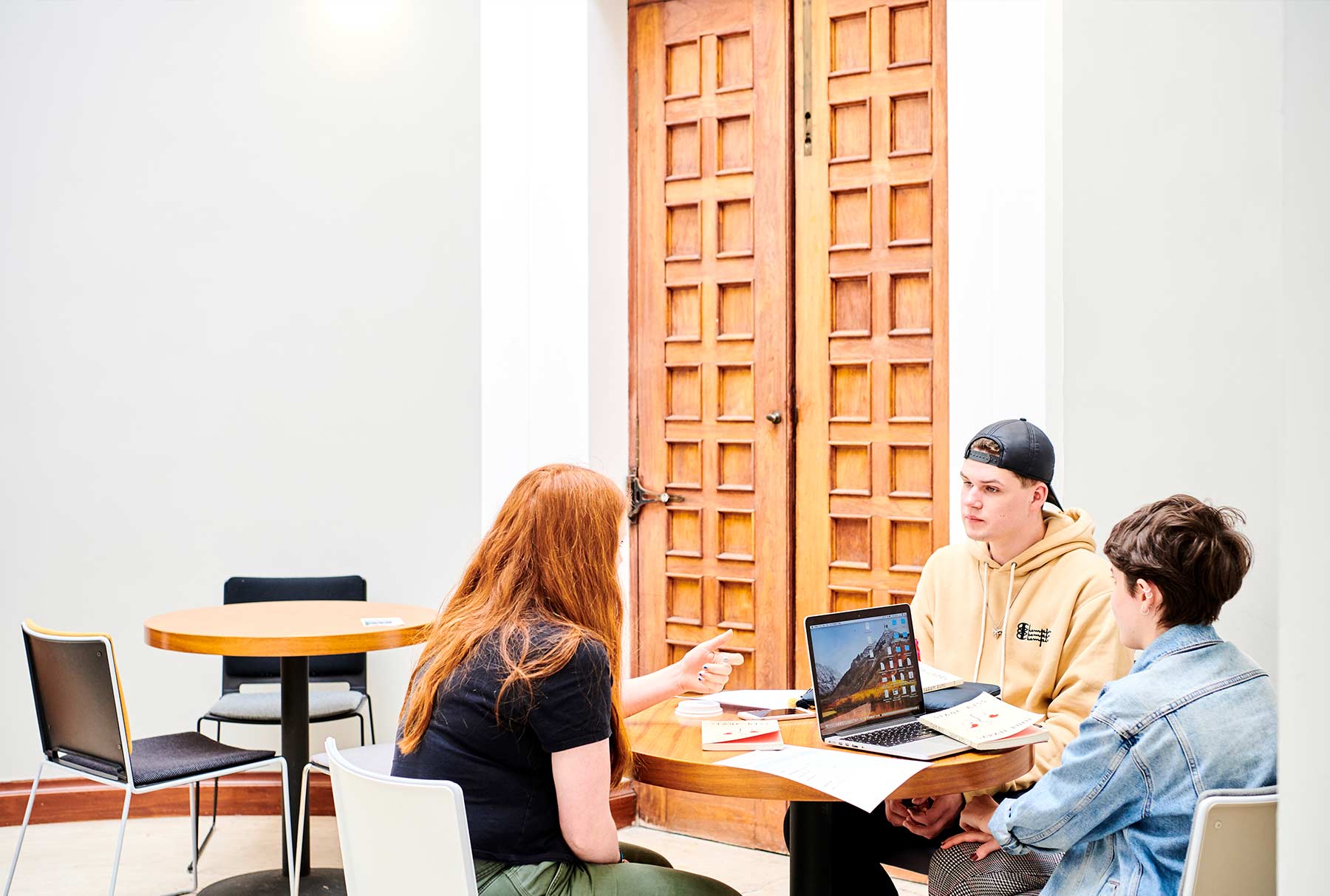
Academic Support for Students
If you need extra support to ensure you can fulfil your potential at university, we have services and people you can draw on throughout your degree here.
All students can avail of two Fellows of the Royal Literary Fund who are professional writers based in the School of English. The RLF fellows are advisors dedicated to developing your writing. You can email them and have one-to-one appointments where you can develop and refine your writing style and argumentation. Students (and staff) have found their guidance extremely helpful in shaping their writing. You will also receive dedicated academic support from personal tutors and library staff in addition to the advice, guidance and support of your lecturers and seminar leaders.
The Library also offers a huge range of resources you can explore at your own pace, drop-in sessions, and advice on how best to use all the academic resources available to you.
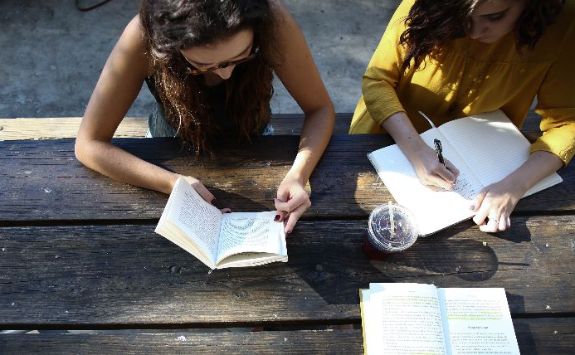
School Support for Wellbeing and Mental Health
We know that some of our students will experience extra challenges when undertaking their degree.
If you have a medical condition or are diagnosed with one during your degree, have caring responsibilities for adults or children, or experience financial or personal challenges, a degree can be harder to undertake.
Who do I talk to to access the academic and pastoral support I need?
In addition to the University’s Service, we have our own dedicated support worker for our students.
This is a message from our colleague, Kirsty Robson. Kirsty is a trained social worker who now works to support and advise our students:
‘My name is Kirsty, and I am the dedicated Student Wellbeing Advisor for SELLL students. My role as the Student Wellbeing Advisor is to act as a point of contact within the School to support students in accessing appropriate support and resources to improve and maintain their personal wellbeing. This can be in relation to a wide range of circumstances and difficulties.
I offer confidential, one-to-one appointments, a listening ear, advice and support. I can make referrals to more specialised teams within the University, such as Counselling, Finance, and Disability Support.
The student wellbeing advisor is part of the wider Student Health and Wellbeing Services team who offer a wide range of specialised support to students regarding their personal wellbeing. Students can refer themselves directly to that team or can be supported to do this via the student wellbeing advisor.’
Kirsty is an invaluable support for all our students. You will also be assigned a Personal Tutor at the beginning of the academic year whom you will meet in induction week. Your Personal Tutor is the first port-of-call for any academic or pastoral issues. You will meet your personal tutor in Induction Week. We also have a First Year Senior Tutor whose role it is to support you in your transition from secondary school to university. Your Peer Mentor, who will be a second or third-year student, can also offer advice from a student perspective.
Student Support Plans
Student Support Plans (SSPs) outline any adjustments you may need for your studies and assessments.
You may need supports and/or adjustments because of particular physical or mental health issues with which you have been diagnosed. These plans are developed with you and, with your consent, shared with the academics teaching you so they are aware of your needs.
If you have a pre-existing condition and if you have included that information on your UCAS form, Wellbeing Services will receive that information and be in touch with you once you join us. If it was not included, you can email disabilityadvisor@ncl.ac.uk to request an appointment at any time in the run-up to the September you are hoping to commence study with us. If you have had an issue recently diagnosed you can contact Kirsty Robson, our dedicated Student Wellbeing Advisor, your Personal Tutor or the First year Senior Tutor. You may also email disabilityadvisor@ncl.ac.uk directly yourself to make an appointment to set up a support plan or revise an existing one.
Caring and the Cost-of-living
We have a scheme called 'Carers' Passports' to support students with caring responsibilities. This allows students who are carers the flexibility they need to do their degree and support those for whom they care.
We are very much aware of the cost-of-living crisis and the impact it has on students. Please do not hesitate to get in touch if you are experiencing financial struggles at any point during your degree. You can also get in touch if you simply want some advice on budgeting or managing money.
Please note
Our teaching is informed by research. Course content may change periodically to reflect developments in the discipline, the requirements of external bodies and partners, and student feedback. Please rest assured we make all reasonable efforts to provide you with the programmes, services and facilities described. However, it may be necessary to make changes due to significant disruption, for example in response to Covid-19.
Full details of the modules on offer will be published through the Programme Regulations and Specifications ahead of each academic year. This usually happens in May.
To find out more please see our terms and conditions.
